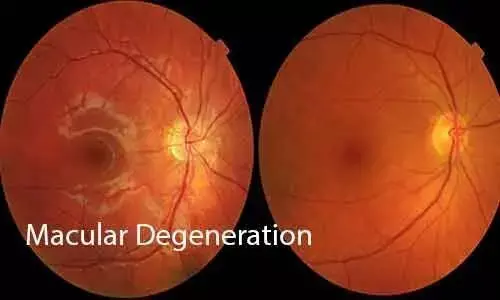- Home
- Medical news & Guidelines
- Anesthesiology
- Cardiology and CTVS
- Critical Care
- Dentistry
- Dermatology
- Diabetes and Endocrinology
- ENT
- Gastroenterology
- Medicine
- Nephrology
- Neurology
- Obstretics-Gynaecology
- Oncology
- Ophthalmology
- Orthopaedics
- Pediatrics-Neonatology
- Psychiatry
- Pulmonology
- Radiology
- Surgery
- Urology
- Laboratory Medicine
- Diet
- Nursing
- Paramedical
- Physiotherapy
- Health news
- Fact Check
- Bone Health Fact Check
- Brain Health Fact Check
- Cancer Related Fact Check
- Child Care Fact Check
- Dental and oral health fact check
- Diabetes and metabolic health fact check
- Diet and Nutrition Fact Check
- Eye and ENT Care Fact Check
- Fitness fact check
- Gut health fact check
- Heart health fact check
- Kidney health fact check
- Medical education fact check
- Men's health fact check
- Respiratory fact check
- Skin and hair care fact check
- Vaccine and Immunization fact check
- Women's health fact check
- AYUSH
- State News
- Andaman and Nicobar Islands
- Andhra Pradesh
- Arunachal Pradesh
- Assam
- Bihar
- Chandigarh
- Chattisgarh
- Dadra and Nagar Haveli
- Daman and Diu
- Delhi
- Goa
- Gujarat
- Haryana
- Himachal Pradesh
- Jammu & Kashmir
- Jharkhand
- Karnataka
- Kerala
- Ladakh
- Lakshadweep
- Madhya Pradesh
- Maharashtra
- Manipur
- Meghalaya
- Mizoram
- Nagaland
- Odisha
- Puducherry
- Punjab
- Rajasthan
- Sikkim
- Tamil Nadu
- Telangana
- Tripura
- Uttar Pradesh
- Uttrakhand
- West Bengal
- Medical Education
- Industry
Study closely links protein to age-related macular degeneration

UK: A new Study closely links Protein to age-related macular degeneration.
A team from Universities of Manchester, Cardiff, London and Nijmegen, and Manchester Foundation NHS Trust has identified a protein which is strongly linked to the commonest cause of blindness in developed countries when its levels are raised in the blood.
The discovery is a major step forward in the understanding of age-related macular degeneration, which affects 1.5 million people in the UK alone.
The study has been published in Nature Communications.
There are two main types of AMD - 'wet' AMD and 'dry' AMD. Whilst some treatment options exist for 'wet' AMD, there is currently no available treatment for 'dry' AMD.
The protein, called FHR4, was found by the team to be present at higher levels in the blood of patients with AMD compared to individuals of a similar age without the disease.
The findings were confirmed in 484 patient and 522 control samples from two independent collections across Europe.
Analyses of eyes donated for research afterlife also revealed the FHR4 protein was present in the AMD-affected parts of the eye
FHR4 was shown by the team to activate the part of the immune system -called the complement system; over activation is a major causal factor of AMD.
FHR4 is one of a group of proteins that regulate the complement system and the genes encoding these proteins are tightly clustered on chromosome 1, the largest human chromosome.
When the team investigated a set of genetic variants across the human genome, they found that genetic variants in this region on chromosome 1 determined the levels of FHR4 in the blood. And they found that the same genetic variants were associated with AMD.
Professor Paul Bishop and Professor Simon Clark, from the University of Manchester were part of the leadership team on the study.
Professor Bishop, who is also a Consultant Ophthalmologist at Manchester Royal Eye Hospital, said: "The combined protein and genetic findings provide compelling evidence that FHR4 is a critical controller of that part of the immune system which affects the eyes.
"We have shown that genetically determined higher blood FHR4 levels leads to more FHR4 in the eye which in turn increases the risk of the uncontrolled immune system response that drives the disease.
"So apart from improving understanding of how AMD is caused, this work provides a way of predicting risk of the disease by simply measuring blood levels of FHR4.
He added: "It also provides a new route to treatment by reducing the blood levels of FHR4 to restore immune system function in the eyes.
"Because treatments options for AMD are limited, this comprehensive understanding of the biology of AMD is a huge boost for scientists finding answers to a problem which causes untold misery for thousands of people in the UK alone."
Professor Simon Clark, a specialist in the regulation of the complement system in health and disease said: "This study really is a step-change in our understanding of how complement activation drives this major blinding disease.
"Up until now, the role played by FHR proteins in disease has only ever been inferred. But now we show a direct link and, more excitingly, become a tangible step closer to identifying a group of potential therapeutic targets to treat this debilitating disease."
For further reference log on to:
http://dx.doi.org/10.1038/s41467-020-14499-3
Dr Kamal Kant Kohli-MBBS, DTCD- a chest specialist with more than 30 years of practice and a flair for writing clinical articles, Dr Kamal Kant Kohli joined Medical Dialogues as a Chief Editor of Medical News. Besides writing articles, as an editor, he proofreads and verifies all the medical content published on Medical Dialogues including those coming from journals, studies,medical conferences,guidelines etc. Email: drkohli@medicaldialogues.in. Contact no. 011-43720751


